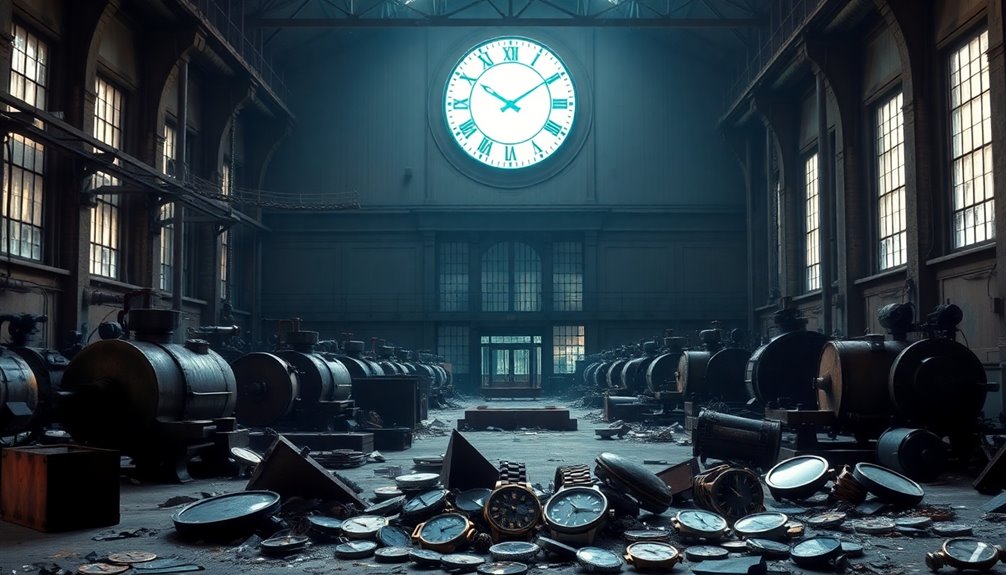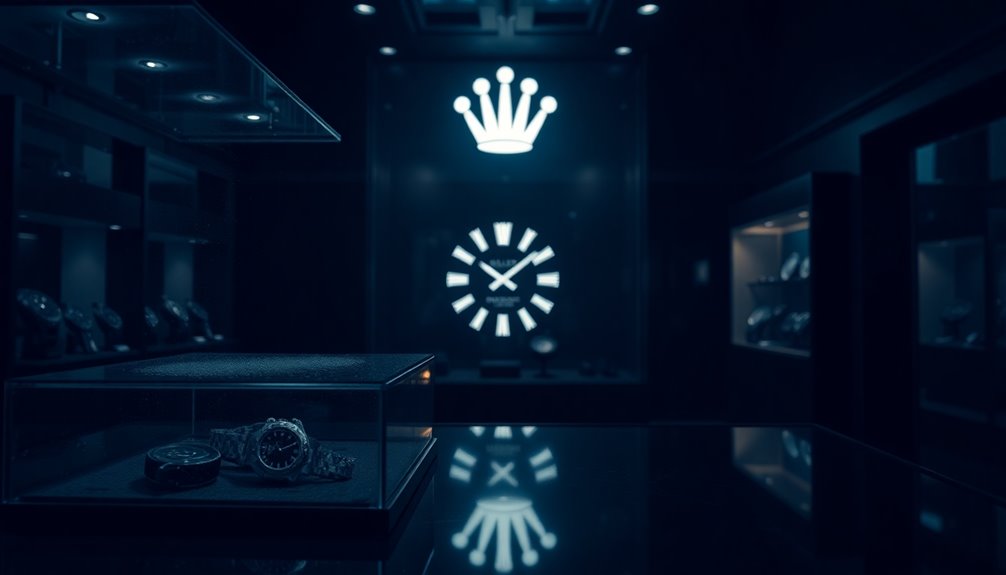Rolex's recent decision to shut down the Carl F. Bucherer brand marks a significant moment in the luxury watch industry. Founded in 1888, Bucherer struggled financially, losing 250 million francs despite peak sales. This closure reflects Rolex's focus on profitability and streamlining operations amidst changing market dynamics. As legacy brands face increasing challenges, the end of Carl F. Bucherer raises questions about the future of heritage labels in the competitive landscape. Discover the nuances behind this bold move.
Key Takeaways
- Rolex shut down Carl F. Bucherer to streamline operations and focus on brands that align with its financial goals.
- Despite its rich history, Carl F. Bucherer faced significant financial struggles, losing around 250 million francs in investments.
- The closure process began with employee announcements, offering them positions at Rolex to ensure stability.
- This decision highlights the challenges legacy brands face in the modern luxury watch market.
- The Swiss watch industry is rapidly evolving, emphasizing the need for innovation and adaptation among established brands.

Rolex Makes Headlines by Shutting Down a Watch Brand With 137 Years of History—Find Out Why.
Rolex Shuts Down Watch Brand
In a significant shift for the luxury watch industry, Rolex has decided to shut down the iconic Carl F. Bucherer brand. Founded in 1888 in Lucerne, Switzerland, Carl F. Bucherer boasted a rich legacy as one of the oldest continuously family-owned Swiss watchmakers. However, despite its historical significance and global presence, the brand struggled financially, operating at a loss even during its peak sales period of 80 to 100 million francs annually. Rolex's acquisition of Bucherer AG in 2023, which included Carl F. Bucherer, marked a new chapter, but it quickly became evident that the brand's unprofitability posed a significant challenge. Bucherer reportedly lost around 250 million francs through its investment in Carl F. Bucherer, raising concerns about the brand's future in a highly competitive luxury watch market. The decision to discontinue Carl F. Bucherer reflects Rolex's strategic move to streamline its operations and focus on brands that align better with its financial goals.
The closure process began with the announcement to employees, who were offered positions at Rolex, ensuring a degree of stability amidst the upheaval. As CFB boutiques and products are phased out, the luxury watch landscape will see a notable shift, making way for other brands. This move underscores the difficulties legacy brands face in adapting to changing market dynamics, even those with a prestigious heritage and technical prowess. The impact of this decision reverberates throughout the luxury watch industry, raising important questions about brand management and the future of heritage labels. With the closure of Carl F. Bucherer in 2025, the Swiss watch industry is reminded of the challenges facing even the most established names.
With the Swiss watch industry evolving rapidly, brands must innovate and adapt to survive. While Carl F. Bucherer's 137-year legacy comes to an end, Rolex's focus on profitability and market relevance highlights the realities of a competitive landscape. The closure serves as a reminder that even the most storied brands must navigate the complexities of modern consumer demands.
Frequently Asked Questions
What Led to Rolex's Decision to Shut Down the Watch Brand?
Rolex's decision to shut down the watch brand stems from several financial considerations.
You'll notice that despite strong sales, the brand consistently operated at a loss, racking up significant financial impacts.
With a highly competitive luxury market and shifting consumer preferences, Rolex aimed to focus on profitability and core operations.
This strategic shift reflects their desire to streamline offerings and adapt to the evolving landscape of luxury watchmaking.
How Will This Impact Rolex's Overall Brand Reputation?
You might think shutting down a historic watch brand would tarnish Rolex's reputation, but it's likely to do the opposite.
By streamlining its brand focus, Rolex emphasizes exclusivity and luxury, enhancing its image in the eyes of discerning customers.
While some enthusiasts may mourn the loss of Carl F. Bucherer, the move strengthens brand loyalty among Rolex fans, ultimately positioning the company as a leader in the competitive luxury watch market.
Are There Any Legal Implications From This Shutdown?
When a brand shuts down, there're several legal implications you need to consider.
You must manage trademarks and intellectual property rights effectively.
Addressing existing contracts with retailers and distributors is crucial, too.
You also have legal obligations to employees, ensuring fair compensation and proper notice periods.
Additionally, the shutdown can impact consumer perception and loyalty, which may alter market dynamics and competition in the industry, affecting your overall business strategy.
What Will Happen to the Employees of the Closed Brand?
When a brand closes, it often leaves employees facing uncertainty. You might find yourself needing to reassess your career options, whether that means seeking new roles within the luxury watch industry or adapting to different sectors.
Some employees could be reassigned, but job security remains a concern. As the luxury market evolves, staying flexible and open to new opportunities will be essential for navigating this transition successfully.
Will Collectors' Items From the Brand Still Hold Value?
Yes, collectors' items from Carl F. Bucherer are likely to retain value.
As the brand is discontinued, existing models may see increased demand, especially limited editions.
Their historical significance and craftsmanship appeal to collectors who appreciate unique pieces from Swiss watchmaking.
While market dynamics and competition play a role, the legacy of Carl F. Bucherer could enhance the desirability of its watches, potentially raising their market value over time.
Conclusion
In shutting down a 137-year-old watch brand, Rolex highlights the harsh realities of the luxury market, where even time-honored names can't escape the pressures of modern competition. Think of a beloved local diner that had to close its doors because a trendy café opened nearby. Just like that diner, some brands must adapt or risk fading away. Rolex's decision reminds us that in the world of luxury watches, evolution is essential to survive and thrive.








